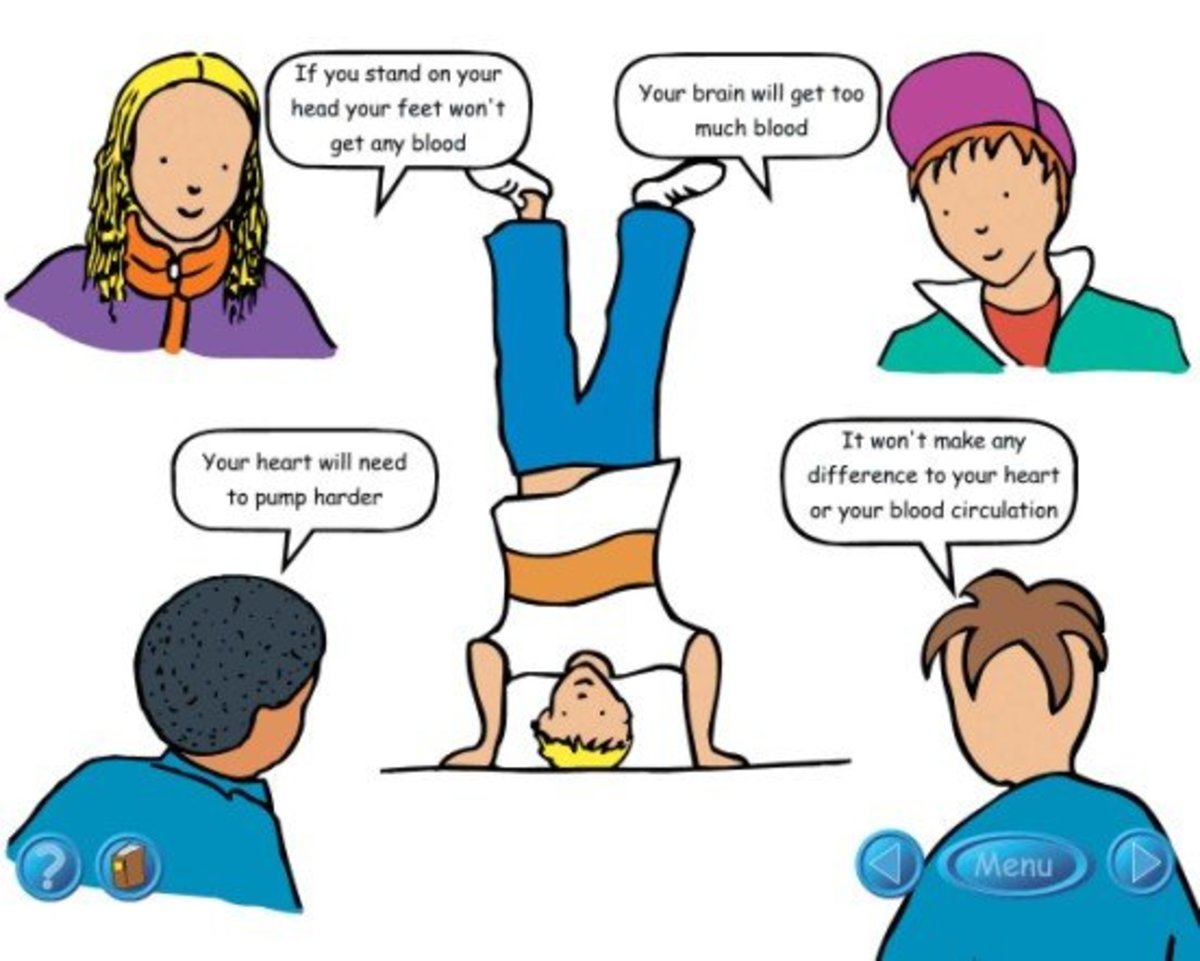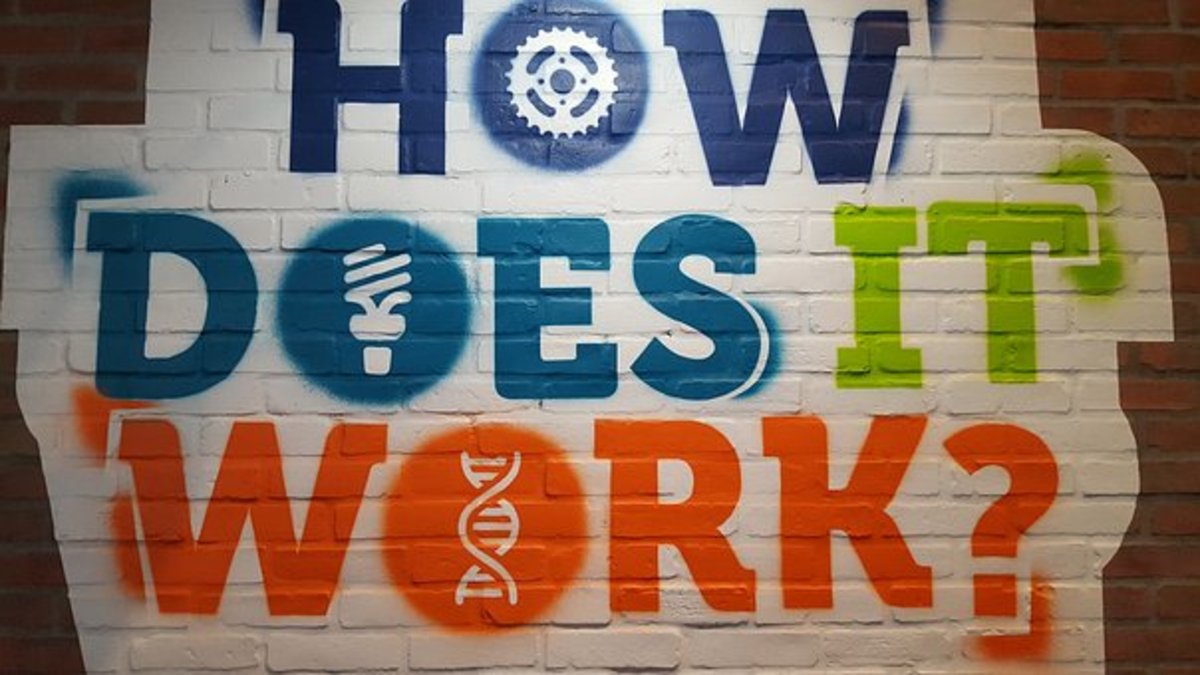Critical Thinking and Diversity Under Siege
The Battle for Freedom of Thought and Expression
Foreword
Over the past several decades colleges and universities in the United States have become modern day bastions of intolerance toward freedom of thought and ideas expressed by those who differ in their views from the accepted "norm" by the liberal element. Witness the recent events in Berkeley, California, where military recruiters were harassed and humiliated by taunting crowds of protestors against their presence. This action by Berkeley's city counsel originated on college campuses, like San Francisco State, by student organized groups out of frustration with the continuation of the Iraq War.
This is what the public can see, however, because of the news coverage of an event which meets the sensationalistic agenda to gain ratings on the evening news. What has been going on in college classrooms and on campuses around the country, that most of the public isn't as aware of, is the subtle brainwashing of young minds by the predominantly liberal faculty. For decades now, colleges and universities have also been making changes in admitting students from a range of minorities; fulfilling the precedent and expectations set by Dr. Martin Luther King, Jr.'s leadership during the '60s to bring equality and justice to our country and eliminate segregation. Yet today, despite these changes, there is a growing intolerance, if not downright hostility toward, those students who don't agree, or go along with, the political "trend" of thought or philosophy - either in regards to current events, or views of professors in the classroom and students on campus. How did we arrive at this culturally predominant attitude today? Why is this so?
How is it that our institutions of higher learning, which were established to be a forum to exchange ideas and differences of view about any subject for the purpose of developing young minds to become critical thinkers, has become exactly the opposite of what was fought for so passionately 40 years ago during the college unrest on campuses; the ability to speak up against oppression and address apparent injustices without fear of reprisals from the faculty or administration of the institution?
My purpose in writing this essay on the topics of diversity and critical thinking, which I believe are inseparably linked, is to examine them in a manner which follows the guidelines that make up much of the accepted constructs of critical thinking within the context of our current socio-political climate today. However, when it comes to diversity, most will find the application of critical thinking to diversity adverse, and most likely highly unacceptable, to their currently held understanding and values. It is also my endeavor to stimulate the thinking of those, still capable of examining alternative views with an open mind; something claimed by many "educated" people to be the basis for their progressive views and political orientation.
Building A Foundation
So that we may have clarity and commonality of understanding, let's first examine what each of these terms this essay is focusing on means. Taking each word, we find that dictionary.com's first three definitions define critical, as it pertains to being used with thinking, as...
- inclined to find fault or to judge with severity, often too readily.
- occupied with or skilled in criticism.
- involving skillful judgment, as to truth, merit, etc.; judicial: a critical analysis.
while thinking is defined as...
- rational; reasoning: People are thinking animals.
- thoughtful; reflective: Any thinking person would reject that plan.
- thought; judgment; reflection: clear thinking.
When we go to sources which define "critical thinking" as an academic discipline, we find, among several others, such things as...
- thinking independently
- exercising fair mindedness
- developing intellectual humility and suspending judgment
- evaluating the credibility of the sources of information
- analyzing or evaluating actions or policies
- comparing and contrasting ideals with actual practice
- examining or evaluating assumptions
- distinguishing relevant from irrelevant facts
- evaluating evidence and alleged facts
- recognizing contradictions
It is interesting to note that, in both definitions of critical and thinking, the word judgment is found as part of the meaning. Yet, when we compare it to item #3 from the list of qualities as an academic process, judgment is to be suspended. Why is this so?
Political correctness, the term used to signify that one should be careful not to offend anyone by using a term or phrase which is considered unacceptable because it might be offensive, is to blame. The psyche of the liberal progressive believes that, in order to be proper, kind, acceptable, and liked, it means one should abandon the passe' terms and expressions which are viewed as offensive; after all, you're being a bigot, sexist, homophobic, insensitive and mean individual if you do. It is "taboo" in the liberal progressive world to come across as judgmental, or to even suggest that you are finding fault with anything they say, do, or believe. The liberal philosophy asserts that to be non-judgmental is how one shows that they are accepting of differences in perspective or views on values unlike theirs. Political correctness is a psychological counter attack to make the non-politically correct person the bad, intolerant, insensitive one. In effect, they are using social pressures to silence differences of view, opinion, or expression and will not allow to even debate the issue that may be counter.
When one synthesizes the meanings of critical and thinking, it is apparent that thought, as it pertains to the process of being critical involves skillful, rational, and clear judgment about what issues one is pondering or considering. It must also involve applying common sense to the issue being evaluated. However, too often today in the arena of ideas, social debate and interaction, common sense seems to have been orphaned from the process.
Now, let's consider the word diversity. Again, dictionary.com's definition states:
- state or fact of being diverse; difference; unlikeness.
- variety; multiformity.
- a point of difference.
From these meanings of diversity, it is apparent that difference and variety are keys elements. It is my contention that, while colleges and universities have done a great job of creating a diverse mix of races and ethnicities, it has not only been negligent of diversity of thought and expression, but has allowed the social climate of many campuses to develop into centers of intolerance toward it. This is dangerous to the maintenance of our civil liberties, such as freedom of speech and the expression of differing opinons, if we haven't already gone too far and lost them by allowing "PC" to dominate our social interactions.
Exercising the Concept Vs. Practical Experience
It would be safe to say that most of our society, when thinking about the kind of education a student receives at our colleges and universities around our country, assumes that one of the most important aspects of their learning experience is to be taught, and put into practice with all of their courses, the skills of critical thinking. Beyond their learning new concepts and ideas through their classes to which they would apply these skills, it would be hoped and expected that they would then transfer this critical thinking process over to their personal and social environment during, and beyond, their college days. However, this is most often not the case today.
No doubt there are courses students can take which offer learning the skills of being a critical thinker, but for the most part, they are specific to a particular area of academic discipline, or major, a minority of students would take as opposed to being taught to every student at the institution of higher learning. A student may be fortunate to have one class out a dozen or more in their four year experience where the professor does more than just mention, or touch upon, the topic. An engineering major's focus will be on applied math, physics, and other related courses which pertain to their area of study. This is also true for many other areas of academia in our modern colleges and universities.
One may believe not being taught critical thinking skills as part of their education is not that big of a deal when their degree doesn't really seem to require or need it. However, the student's experience is not completely void of the dynamic of social interaction throughout their time in college; both with their peers and with their professors who teach them. We can not ignore the reality which exists as part of campus life, as well as how attitudes and beliefs are developed from their prior experiences within the context of the world they live in. It should also be apparent to those thinking clearly about the consequence of not learning this skill that political correctness is what has replaced critical thinking at our institutions of higher learning.
Our modern technological age of the information explosion, with the Internet so readily available today, has impacted today's youth in a way we don't really understand. The entertainment industry - with its messages in songs and movies, the political arena - with its various ideologies, the fashion industry - with its subtle manipulation of what is "in" to be wearing all influence and mold both attitudes and thinking processes toward how they view their world of today. Neither can we ignore the reality that interaction with others - especially with new friendships formed - the influence particular individuals will have; especially with those who have more assertive personalities over less assured, or confident ones. Weak, unconfident individuals who are uncertain of their views succum to the mantra, "Everyone else is doing it, so it must be the way to go." This has always been a truism of the era through which every generation has grown, from pubescence into adulthood, during the last one hundred years or more.
Taking these factors into account, the question begs to be asked; how has this more recent lack of learning the skills of applying critical thinking to not only what they're learning, but also to how they formulate their personal philosophy about various aspects of their current world; both locally, nationally, and globally, affected their perspective?
Finally, let's compare the ideal of critical thinking to the practical experience of it and how one dominates over the other. If critical thinking skills are taught so that students can then successfully utilize and develop them to formulate positions about various aspects of their learning, as well as issues which relate to these concepts, a prerequisite of an encouraging, supportive and open to discussion of differing views instructor/professor is necessary to foster the proper climate in which reluctant young minds, exploring the waters of the process, are venturing. Yet, the reality of a vast majority of students' experiences in their classes are the opposite.
Often a professor will use the time before a class begins formal instruction to dialog with the class about various current issues or topics of the day, or, if no dialog is engaged, may simply monologue about how they view certain issues, or current events, communicating to the students the professor's personal political and philosophical beliefs and attitudes. Should the student come from a family background which is contrary to this view, and is not of a strong enough character, or has yet to clearly formulate their position on a particular issue being covered, then the student of this uncertain position will, over time, do one of two things; either ignore the professor's opinions, or begin incorporating these views and attitudes into their own construct of thinking. A lesser number of students, especially in today's mass media culture of compressed and highly filtered content, have formed clear, well thought out positions on the level at which the professor is addressing the topic, unless they've adopted what is the acceptable viewpoint. If they have formed any views or opinions on issues, it is mostly constructed from very limited information, or what someone's convinced them is the logical and correct position for it. Most 18 -21 year olds could care less about current events going on around them, for their focus at this stage of life is more often than not revolving around relationships with their peers. The behavioral tendency of young adults of college age is to go along with the prevailing attitudes and opinions of those who are older and more experienced than they, or are more assertive in their position than they are, if they are within their peer group. However, there is also the reality of the authority figure in the professor, who weilds power in the form of grades to his/her students, which they must also contend with. It is this understanding by some professors which is taken advantage of to exercise their position of authority, or worse, their misguided air of superiority over their students, should a challenge occur.
If they do, and he/she speaks up to challenge the professor's position, it is often met with ridicule, and they are made out amongst their peers as the ignorant and uninformed. Worse yet, they very likely could be met in response with barrage of labels of a derogatory nature; such as prejudice, fascist, nazi, intollerant, homophobic, bigot or sexist, in any combination, or collectively. Clearly, this is nothing more than academic "thuggery" and is used to delegitimize the speaker who has countering views. It takes but one or two instances of this during a class for the students to assess that it is not safe, nor wise, to challenge the professor about their views and opinions. It can also go as far as the student jeopardizing their grade in a class with such a circumstance, if they submit a paper that doesn't agree with the professor's views. This is what universities and colleges have become today, "This is the way to think!" instead of this is how to think.
This is also true when students of a differing political, or social view, attempt to engage in sharing them; whether it be setting up a table outside in the campus square to attract the attention of passers by about their organization or club of conservatives, for instance, or hosting a lecture with a guest speaker that has views anathema to the predominantly accepted one, or even using certain words or phrases that have been deemed "unacceptable" by administrations. These diverse views are suppressed or squelched by either the students, the faculty, or the institution's administration; sometimes resulting in disciplinary actions that borders on the absurd; from psychological counseling, to expulsion from the school. In fact, even faculty members who divulge that they are conservative oriented politically, run the risk of being slowly pressured to leave the institution in subtle, nagging, and harassing ways.
The Death of Common Sense and the Hijacking of A Dream
Why is it that many colleges and universities require professors to show on their form for developing a new course how their class being taught will address the issues of race, class and gender? This is not just for a class in sociology, history, or drama, but for ornamental horticulture, physics, mathematics, or physiology and anatomy. If the paperwork submitted by the professor does not address these required elements, the committee will most likely not approve the course for the professor to teach it.
Should a professor, and especially an African-American one, oppose affirmative action as a policy of the college they teach at, grants for which they apply are never granted as a way of punishing them for their difference of view with the institution's policy position. If a family who has two sons, one white and one Latin American because they adopted him, and raised him as an equal with his siblings in an affluent home, is it right and fair that the adopted son should be chosen over the natural born son to go to a college they've both applied to, simply because the adopted one has a different ethnic background? Of course not! Yet, this is what is happening in some cases across the country.
If we look carefully at what Dr. King said in his famous "I Have A Dream" speech on the steps of the Lincoln Memorial during the '60s, we will find that he said he dreamt of a day when all people will be judged, not by the color of their skin, but by the content of their character. Judging people, based on their skin color, is racism, no matter which way you look at it. Yet, to express this view or opinion in connection with affirmative action at an institution of higher learning is considered, by most today, as "hate speech" that can get you arrested. So, clearly it is not acceptable for someone to simply wish for everyone to be treated equally, regardless of their color. One has to ask themselves, in all honesty, was this what Dr. King wanted for the future generations of citizens in our country? When did the "love train jump off the tracks" and begin careening down the mountain?
There are some professors who hold the philosophy that "whiteness" is a form of racial oppression and that there can be no white race without white supremacy. One professor, who is also white, said, "If one can abolish whiteness, one can abolish slavery and oppression. Whiteness is not a religion, it's not a culture, it's not a language, it is simply an oppressive social category." These types of beliefs and statements are completely acceptable, but to say anything opposed to this, simply is blasphemy against the modern religion of secularism. Jonah Goldberg, in his current book Liberal Fascism, (see book at bottom of this piece) puts it this way;
"But liberal fascists are still racist in their own way, believing in the inherent numinousness of blacks and the permanence of white sin, and therefore the eternal justification of white guilt."
and further down on the same page...
"Many on the left talk of destroying 'whiteness' in a way that is more than superficially reminiscent of the National Socialist effort to 'de-Judaize' German society. Indeed, it is telling that the man who oversaw the legal front of this project, Carl Schmidtt, is hugely popular among leftist academics. Mainstream liberals don't necessarily agree with these intellectuals, but they do accord them a reverecne and respect that often amounts to a tacit endorsement." (pg. 16)
Most African American Studies departments around the country today do a very effective job of teaching the student how to be a victim, and in ways that the student may not have even considered. The student of color gets to satisfy their sense of being a noble person by being a victim. Rather than having the student develop their sense of self-esteem and accomplishment through normal means of the education process, the colleges are not only giving them a "leg up" to get there when they may not have qualified academically, but they foster a false sense of worth and esteem by convincing them they are still oppressed by some mythical "slave master" that lurks in the shadows attempting to capture them once again.
Many of our schools of higher learning today are promoting racial separatism, and are doing it all in the name of diversity. Students of certain ethnicities are encouraged to segregate themselves, instead of to integrate with students of differing ones. The consequence of mixing with other races is treated with challenging the African American's, Hispanic's or Asian's loyalty to their race and questions their having "sold out" to the other side. "Oreo and Uncle Tom" are only a few labels used to demean those who engage in relations with those outside their ethnic circle.
Since when was it a "right" to not be offended? I don't know about you, but I've yet to find this one in the Bill of Rights. The definition, again from dictionary.com, which most appropriately aligns with the intent with which the word offend is used in context with liberal progressive's sensitivity says, "to cause resentful displeasure; irritate, annoy, or anger: a remark so thoughtless, it can only offend. Now, if one is thinking carefully and clearly, it should be a given that, the experience of being offended is not an exclusive reaction or feeling to liberal progressives. Conservatives, independents, or libertarians for that matter, can also be offended by a remark, form of expression, or idea, but for them to express their irritation, annoyance, or anger about being offended from it, is to be treated by the liberal as void of any merit, validity, or consideration. Instead, these differing views are couched by the liberal as narrow, discriminatory, insensitive, racist, and bigoted; only to be discounted and ignored. In this manner of handling opposition to their position, they can maintain a sense of correctness, superiority and exclusivity.
The Religiously Conflicted Liberal of Today
While "whiteness" as the professor put it, may not be a religion, it is ironic that most liberals today have no concept (and if they do, they've chosen to forget it) of the involvement and connection its current philosphy has with religion. Again, Jonah Goldberg states,
"Many liberals also miss the religious dimension of Progressivism because they tend to view religion and progressive politics as diametrically opposed to each other; thus, while liberals who remember the civil rights movement acknowledge that the churches played a role, they don't see it on a continuum with other religiously inspired progressive crusades like abolition and temperance. Today's liberal fascism eshews talk of Christianity for the most part, except to roll back its influence where it can (although a right-wing version often called compassionate conservatism has made inroads in the Republican Party). But while the God talk may have fallen by the wayside, the religious crusader's spirit that powered Progressivism remains as strong as ever. Rather than talk in explicitly religious terms, however, today's liberals use a secularized vocabulary of 'hope' [sound familiar to a candidate you know?] and construct explicitly spiritual philosophies like Hillary Clinton's 'politics of meaning'." (pg. 15)
In conclusion
If one analyzes all the factors and points covered in this essay with an open and critically thoughtful approach, it should be obvious that the liberal progressive is not really interested in the values and positions they claim to uphold. Everything is exactly opposite of what they espouse. In order to defend their positions under attack, they resort to labeling in a derogatory manner by using "red flag" terms in order to intimidate and call into question the validity of the opposing point, or its maker and the integrity of their character. They are more aligned with fascist control and philosophy; using subtle coercion and intimidation against their adversary. This is the means by which they confuse, divert and distract from engaging in true discussion of ideas and views, for they themselves are just as close minded and judgmental as they assert conservatives are.
Thus, freedom of thought, or the desire to express a differing view, is suppressed in most academic settings of higher learning today. Are our institutions of higher learning now enclaves for liberal fascists? While the term "liberal fascist" might seem odd to you, there is an outstanding work now in print which more sufficiently addresses this issue; it is Jonah Goldberg's Liberal Fascism. (See the link below for this book.) For a prime example of the concept shared here in video format, I suggest visiting this link to view a short trailer of a documentary on this very issue. Its titled, Indoctrinate-U.
Recommended Reading
Other Hubs by Jondolar
- The Myth of Political Correctness
Does "political correctness" promote tolerance & sensitivity, or is it a means by which social pressure is used to silence differences of opinion or variations of values between people? This hub examines this issue & examines its affects on society. - The Morphing of America
Over the past 50 years the socio-political climate in the U.S. has changed from an optimistic attitude of individualism & minimal government intervention with a promising future, to one of dependent collectivism under "Big Brother" ideology. - Global Warming Vs. Global Cooling
Is global warming scientific fact, or "junk science" fiction? Is it a hoax as some say, or is it going to totally change our planet? Why are there two opposing groups of scientists who disagree on this topic? Let's consider both sides carefully.









